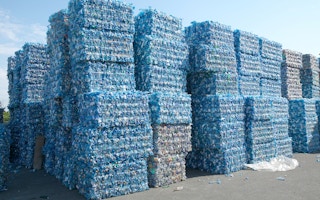Here’s our pick of the top 5 developments in 2014:
To continue reading, subscribe to Eco‑Business.
There's something for everyone. We offer a range of subscription plans.
- Access our stories and receive our Insights Weekly newsletter with the free EB Member plan.
- Unlock unlimited access to our content and archive with EB Circle.
- Publish your content with EB Premium.
1. Rise of the circular economy
The idea of a ‘circular economy’ has been rapidly gaining ground as a promising alternative for businesses to reconcile their need for growth with pressing resource constraints and environmental objectives.
Scandinavian think thank Sustainia released a report in June showing that the circular economy - a concept which ensures that products are designed with their eventual reuse, upcycling or biodegradation in mind - emerged as the most prominent trend that is driving the innovation of sustainable solutions worldwide. Circular economy thinking was evident in a quarter of the 100 solutions submitted to Sustania for their Sustainia100 initiative.
Nigerian initiative Wecyclers, which was crowned the top winner at this year’s Sustainia Award, showcased a simple urban waste management system that is scalable and easily replicated in densely-populated cities around the world. Wecylers is a small enterprise which deploys a fleet of cargo bicycles to collect recyclable waste such as plastic bottles, plastic sachets and aluminum cans in low-income communities in Nigeria’s capital, Lagos.
2. Companies increasingly find new purpose for end-of-life products
Firms such as IBM have found a new way to ensure old laptop batteries do not just end up in waste. A recent research by its team in India looked into discarded batteries and found 70 per cent could still power up a LED light on for more than four hours a day for a year. So they created a device that uses lithium-ion cells from the old batteries to power low-energy DC devices that can be used for lighting.
At Massachussetts Institute of Technology, engineers have found a way to recycle the lead from old car batteries and turn them into low-cost solar panels. The lead from just one car battery could produce cheaper and easier to make solar panels that could power 30 households, according to researchers.
Japanese firms Sumitomo Corporation and Nissan Motors ventured into solar energy storage using discarded electric vehicle batteries, complementing the country’s move to continue building more solar power plants. In February, Sumitomo began testing whether EV lithium-ion batteries can successfully store power from the sun at the Hikari-no-mori solar farm in Osaka.
3. Cities take the lead
Governments across Asia Pacific have rolled out policies to tackle waste. In Singapore, a city known for effectively integrating its waste management into urban planning, the government is stepping up mandates which will require malls larger than 50,000 square feet and hotels with more than 200 rooms to report their waste and recycling data to the city-state’s National Environment Agency starting from next year.
In Sydney, Australia, the government announced new initiatives this year that provided incentives for recycling plastic, cans and bottles. It also planned to convert non-recyclable household waste into gas, according to a draft waste management master plan announced in May.
In Indonesia, Bali, for example, villagers are cleaning up their neighbourhoods by collecting plastic and turning it into fuel through a locally-made incinerator. And a 24-year-old Indonesian doctor Gamal Albinsaid made headlines for his Garbage Clinical Insurance, which collects household waste through a recycling initiative in exchange for medical health cover. Albinsaid was the top prize winner of the Unilever Sustainable Living Young Entrepreneurs Awards.
4. Upcycling plastic
Plastic Forests, an innovative new firm in Australia, has launched a world-first processing plant that upcycles contaminated plastic films, including shopping bags and packaging films. David Hodge, the firm’s director and co-founder said plastic is a resource that should be repurposed as other plastic products rather than sent to landfill or burned for energy. His firm now processes contaminated plastic film waste generated by the food sector, particularly the chicken, pork and cereals industries, into useful products such as resin, electrical cable covers, root guards for trees and garden edging.
5. Campaigns against food waste
In March, French supermarket chain Intermarche launched a campaign against food waste called ‘Inglorious Fruits and Vegetables’, aimed at raising awareness on food waste and getting customers to buy ugly produce that otherwise gets thrown away. The campaign earned global attention through social media after it successfully convinced consumers that these produce are as edible and healthy as those that have appealing figures and shapes.
This month, Australian retailers such as Woolworths followed suit with its ‘odd bunch‘ campaign and Harris Farm Market introduced its “Imperfect Picks” for ugly produce at cheaper prices. Researcher Bethany Turner of University of Canberra, however, disagree that the campaign could effectively cut food waste as “access to cheaper food doesn’t mean less household food waste”.
This story has been edited to reflect corrections on David Hodge’s views on best uses of discarded plastics, other than waste-to-energy.
This story is part of our Year in Review series, which looks at the top stories that shaped the business and sustainability scene in each of our 11 categories.














